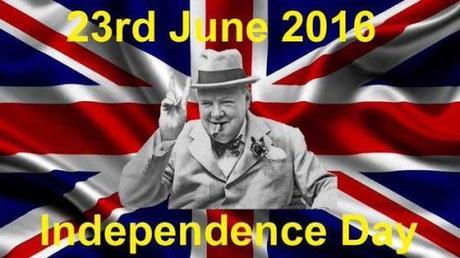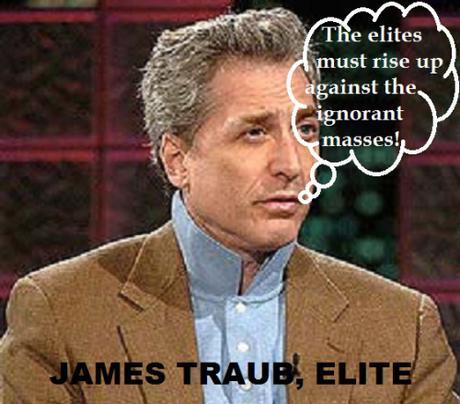On June 23, 2016, a political earthquake took place in the United Kingdom, the reverberations of which continue to shake up financial markets and power elites across the world.
On that day, Britons went to the polls to decide for themselves whether their country would leave or stay in the European Union (EU).
The result was clear. Despite threats, dire warnings of financial doom, and trashing of nationalism from Obama, UK Prime Minister David Cameron, German Chancellor Angela Merkel and assorted bankers, the British people voted 52%-48% for independence and to leave the EU.
 Already, there are machinations to reverse the will of the people. The media are trumpeting that millions have signed a petition to redo the referendum. But what they haven’t and won’t tell you is that the petition is fake. See here.
Already, there are machinations to reverse the will of the people. The media are trumpeting that millions have signed a petition to redo the referendum. But what they haven’t and won’t tell you is that the petition is fake. See here.
There is at least one thing the Brexit referendum has achieved: It has stripped away the mask from the faces of one-world global elites — for whom nationalism is a dirty word and, with their accomplices in the MSM, do their utmost to paint nationalists as extremist Nazi “nativists” — revealing them as the arrogant narcissists that they are, who think they alone have the right answers, with only contempt for us “ordinary” people.
First, President of the European Parliament Martin Schultz high-handedly dismissed the referendum. According to a reputable Italian financial analyst and trader, Schultz said, “The British have violated the rules. It is not the EU philosophy that the crowd can decide his fate.”
Schultz’s sentiments are echoed by James Traub — an East coast elite, Harvard graduate, journalist and author, contributing editor of the influential Foreign Policy journal, member of the Council on Foreign Relations, and a liberal Jew. (Wikipedia says Traub’s father, Marvin Traub, former chairman of Bloomingdale’s, “was born to a Jewish family…in New York City.”)

I will let James Traub’s own words be his indictment.
Below is Traub’s op/ed, “It’s Time for the Elites to Rise Up Against the Ignorant Masses,” published in Foreign Policy on June 28, 2016, in its entirety. You’ll read for yourself his insufferable grandiosity, convinced that global elites like him and Hillary Clinton alone clearly see “reality” and have the answers, while the unwashed “masses” who disagree with him are atavistic, “ignorant,” knuckle-dragging, stupid, neo-Nazi (“far right”) “nativists,” as if loving one’s country — one’s native land — is a bad thing. I added the red bold highlighting.
I was born in 1954, and until now I would have said that the late 1960s was the greatest period of political convulsion I have lived through. Yet for all that the Vietnam War and the civil rights struggle changed American culture and reshaped political parties, in retrospect those wild storms look like the normal oscillations of a relatively stable political system. The present moment is different. Today’s citizen revolt — in the United States, Britain, and Europe — may upend politics as nothing else has in my lifetime.
In the late 1960s, elites were in disarray, as they are now — but back then they were fleeing from kids rebelling against their parents’ world; now the elites are fleeing from the parents. Extremism has gone mainstream. One of the most brazen features of the Brexit vote was the utter repudiation of the bankers and economists and Western heads of state who warned voters against the dangers of a split with the European Union. British Prime Minister David Cameron thought that voters would defer to the near-universal opinion of experts; that only shows how utterly he misjudged his own people.
Both the Conservative and the Labour parties in Britain are now in crisis. The British have had their day of reckoning; the American one looms. If Donald Trump loses, and loses badly (forgive me my reckless optimism, but I believe he will) the Republican Party may endure a historic split between its know-nothing base and its K Street/Chamber of Commerce leadership class. The Socialist government of France may face a similar fiasco in national elections next spring: Polls indicate that President François Hollande would not even make it to the final round of voting. Right-wing parties all over Europe are clamoring for an exit vote of their own.
Yes, it’s possible that all the political pieces will fly up into the air and settle down more or less where they were before, but the Brexit vote shows that shocking change isn’t very shocking anymore. Where, then, could those pieces end up? Europe is already pointing in one direction. In much of Europe, far-right nativist parties lead in the polls. So far, none has mustered a majority, though last month Norbert Hofer, the leader of Austria’s far-right Freedom Party, which traffics in Nazi symbolism, came within a hair of winning election as president. Mainstream parties of the left and right may increasingly combine forces to keep out the nationalists. This has already happened in Sweden, where a right-of-center party serves as the minority partner to the left-of-center government. If the Socialists in France do in fact lose the first round, they will almost certainly support the conservative Republicans against the far-right National Front.
Perhaps these informal coalitions can survive until the fever breaks. But the imperative of cohabitation could also lead to genuine realignment. That is, chunks of parties from the left and right of center could break away to form a different kind of center, defending pragmatism, meliorism, technical knowledge, and effective governance against the ideological forces gathering on both sides. It’s not hard to imagine the Republican Party in the United States — and perhaps the British Conservatives should Brexit go terribly wrong — losing control of the angry, nationalist rank and file and reconstituting themselves as the kind of Main Street, pro-business parties they were a generation ago, before their ideological zeal led them into a blind alley. That may be their only alternative to irrelevance.
The issue, at bottom, is globalization. Brexit, Trump, the National Front, and so on show that political elites have misjudged the depth of the anger at global forces and thus the demand that someone, somehow, restore the status quo ante. It may seem strange that the reaction has come today rather than immediately after the economic crisis of 2008, but the ebbing of the crisis has led to a new sense of stagnation. With prospects of flat growth in Europe and minimal income growth in the United States, voters are rebelling against their dismal long-term prospects. And globalization means culture as well as economics: Older people whose familiar world is vanishing beneath a welter of foreign tongues and multicultural celebrations are waving their fists at cosmopolitan elites. I was recently in Poland, where a far-right party appealing to nationalism and tradition has gained power despite years of undeniable prosperity under a centrist regime. Supporters use the same words again and again to explain their vote: “values and tradition.” They voted for Polishness against the modernity of Western Europe.
Perhaps politics will realign itself around the axis of globalization, with the fist-shakers on one side and the pragmatists on the other. The nationalists would win the loyalty of working-class and middle-class whites who see themselves as the defenders of sovereignty. The reformed center would include the beneficiaries of globalization and the poor and non-white and marginal citizens who recognize that the celebration of national identity excludes them.
Of course, mainstream parties of both the left and the right are trying to reach the angry nationalists. Sometimes this takes the form of gross truckling, as when Nicolas Sarkozy, who is seeking to regain France’s presidency, denounces the “tyranny of minorities” and invokes the “forever France” of an all-white past. From the left, Hillary Clinton has jettisoned her free-trade past to appeal to union members and others who want to protect national borders against the global market. But left and right disagree so deeply about how best to cushion the effects of globalization, and how to deal with the vast influx of refugees and migrants, that even the threat of extremism may not be enough to bring them to make common cause.
The schism we see opening before us is not just about policies, but about reality. The Brexit forces won because cynical leaders were prepared to cater to voters’ paranoia, lying to them about the dangers of immigration and the costs of membership in the EU. Some of those leaders have already begun to admit that they were lying. Donald Trump has, of course, set a new standard for disingenuousness and catering to voters’ fears, whether over immigration or foreign trade or anything else he can think of. The Republican Party, already rife with science-deniers and economic reality-deniers, has thrown itself into the embrace of a man who fabricates realities that ignorant people like to inhabit.
Did I say “ignorant”? Yes, I did. It is necessary to say that people are deluded and that the task of leadership is to un-delude them. Is that “elitist”? Maybe it is; maybe we have become so inclined to celebrate the authenticity of all personal conviction that it is now elitist to believe in reason, expertise, and the lessons of history. If so, the party of accepting reality must be prepared to take on the party of denying reality, and its enablers among those who know better. If that is the coming realignment, we should embrace it.
See also:
- Obama triggered the Brexit votes to leave EU
- Millennials vent fury at baby boomers for voting Britain OUT of the EU
- EU to impose pan-Europe tax system and tax ID number for every European — and wants to make it global
- Merging of German & Dutch military is beginning of an EU Army
- Secret plan by Eurocrats to abolish Britain
- Harvard Law prof: Treat conservatives as defeated war criminals
~Eowyn

